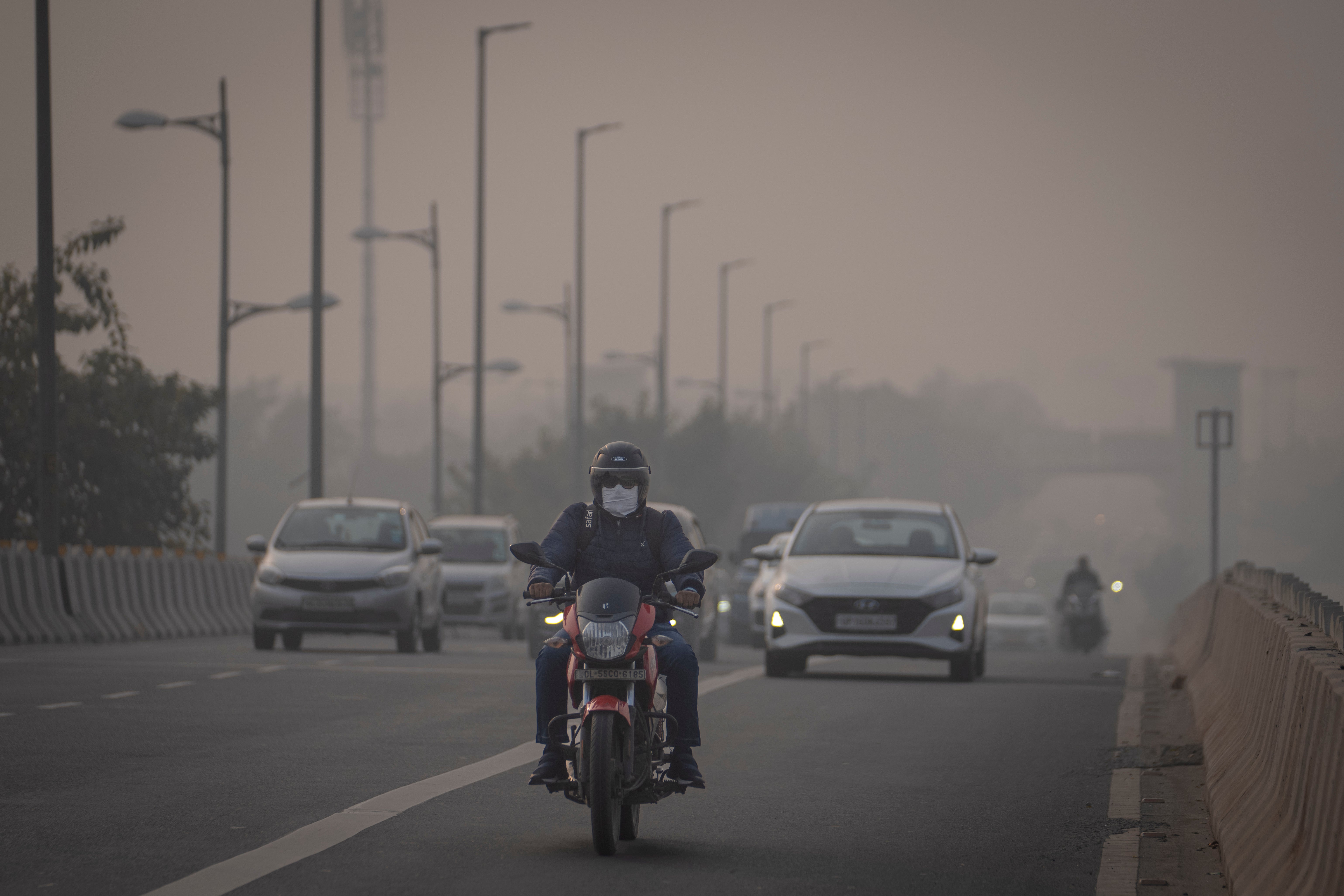Air pollution and rising temperatures linked to increase in number of strokes globally
Stroke causes over 7 million deaths annually
Your support helps us to tell the story
From reproductive rights to climate change to Big Tech, The Independent is on the ground when the story is developing. Whether it's investigating the financials of Elon Musk's pro-Trump PAC or producing our latest documentary, 'The A Word', which shines a light on the American women fighting for reproductive rights, we know how important it is to parse out the facts from the messaging.
At such a critical moment in US history, we need reporters on the ground. Your donation allows us to keep sending journalists to speak to both sides of the story.
The Independent is trusted by Americans across the entire political spectrum. And unlike many other quality news outlets, we choose not to lock Americans out of our reporting and analysis with paywalls. We believe quality journalism should be available to everyone, paid for by those who can afford it.
Your support makes all the difference.Air pollution and rising temperatures are increasing the number of strokes around the world, a new study says.
The number of people affected by stroke worldwide has surged in the past three decades, the study published in The Lancet Neurology notes, with air pollution, rising temperatures and lifestyle factors contributing to the increase.
Stroke now affects nearly 12 million people annually, causing over 7 million deaths.
From 1990 to 2021, new stroke cases increased by 70 per cent while deaths rose by 44 per cent. Disability caused by stroke also grew by 32 per cent.
"Despite being largely preventable, stroke remains a growing global health issue," Prof Valery Feigin, lead author of the study published on Thursday as part of the Global Burden of Disease project, said.
"The number of people dying from or living with the effects of stroke is rising quickly, showing that current prevention strategies are not enough."
The study identifies 23 risk factors responsible for 84 per cent of the global stroke burden. Air pollution, smoking, high body weight, and high blood pressure are the leading causes.

A particularly concerning finding is the increasing role of environmental factors like air pollution and high temperatures in causing strokes. Particulate air pollution is now also linked to deadly brain haemorrhages, putting it on a par with smoking.
"Air pollution and rising temperatures are playing a larger role in strokes than ever before," Dr Catherine O Johnson, co-author of the study, said.
"We must address these environmental risks alongside metabolic and lifestyle factors to reduce the stroke burden."
Low- and middle-income countries like India, Nigeria and Bangladesh are hit the hardest, accounting for over three-quarters of all stroke-related deaths. Stroke rates in parts of East Asia, sub-Saharan Africa, and Central Asia are up to 10 times higher than in high-income regions like North America and Australia.
“Stroke-related health loss disproportionately impacts many of the most disadvantaged countries in Asia and sub-Saharan Africa due to the growing burden of uncontrolled risk factors, especially poorly controlled high blood pressure, and rising levels of obesity and type 2 diabetes in young adults, as well as the lack of stroke prevention and care services in these regions,” Dr Johnson, lead research scientist at the Institute for Health Metrics and Evaluation in the US, said.
Unless preventive action is taken, she warned, the growing stroke burden in younger populations will continue to rise.

Metabolic factors like high blood pressure, high cholesterol and obesity remain the main contributors of strokes globally.
Between 1990 and 2021, the stroke burden linked to high body mass index grew by 88 per cent and that of high blood sugar by 32 per cent.
Lifestyle factors, such as low physical activity and diets high in sugary drinks, also contributed to the rise in strokes, particularly in younger populations.
While the overall number of strokes has risen, age-adjusted stroke rates, which account for population growth and aeging, have decreased since 1990. However, progress has stalled in recent years, particularly in Southeast Asia, East Asia, and Oceania.
"With 84 per cent of strokes linked to preventable risk factors, there is a clear opportunity to reverse this trend," Dr Johnson said.
"Urgent action on air pollution, climate change, and the management of obesity and blood pressure is essential."
The Independent will be revealing its Climate100 List on 25 September and hosting an event in New York, which can be attended online.

Join our commenting forum
Join thought-provoking conversations, follow other Independent readers and see their replies
Comments